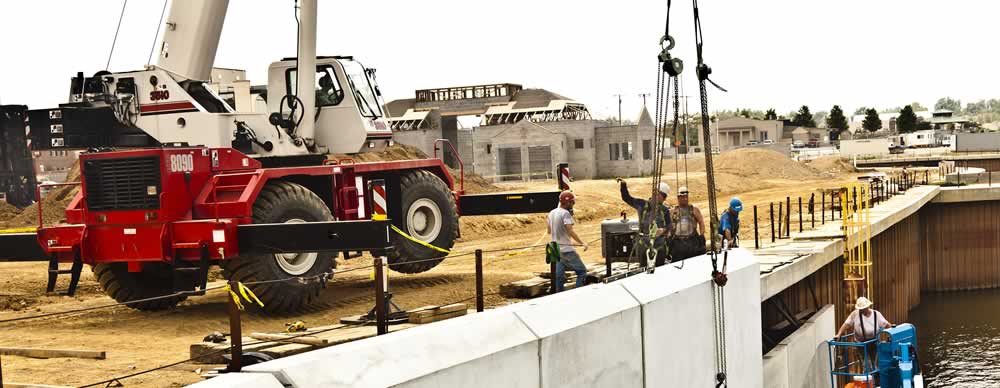Chapter Gallery of Images
What's Done, What's Next: A Civic Pact
Chapter Two:
Underlying Big Decisions,An Owensboro Operating System That Works, Mostly
by Keith Schneider
August 19, 2011

Building new infrastructure, among them some of the longest runways in Kentucky, enhance the competitiveness of a community that just developed twice a week air service to Las Vegas. Bob Whitmer is the airport manager.
Right off the bat, it’s important to note how different Owensboro’s attitude about the future is from much of the rest of the country. Owensboro is in transition, to be sure. But its vector is pointing up, not down.
That’s not the case in too many other places. The public mood is so hollowed out that Americans have settled on a single word – “dysfunctional” – as a polite way to describe the ideological fanaticism, political ruthlessness, and economic heedlessness that has made the intrinsically messy process of governing the nation unbearable. Similarly fierce conflict and feckless results also characterize the brand of democracy that has taken hold in Frankfort, Sacramento, Lansing and most other state capitals bullied by deficits, slashed programs, and demoralizing layoffs.
Indeed dysfunction and disinvestment define much of America’s painful era of national reckoning and stagnation. But not all of it.
It turns out that American democracy still works at the local level, a select group of big and small cities and counties. The reality of day-to-day civic needs – street repair, garbage collection, emergency services, construction permits, contracts – tends to temper political combat, reward insightful and strong leaders, and replace ideology and revenge with shared values and some measure of common decency.
The local governments that are widely regarded as setting the gold standard in municipal management – Chicago, New York, Denver, Charleston, S.C., Chattanooga, Grand Rapids, to name a few – also are defying the tax-cutting, investment-starving economic logic of the times. They are spending taxpayer dollars on new transit systems, housing, schools, research centers, parks, city-wide Internet access, college scholarships, inducements to attract entrepreneurs, and any number of other public programs and civic equipment to leverage private investment. All are performing much better economically than the states they are in.

From stagnation in Owensboro has come opportunity.
These cities, managed by capable elected and appointed officials and supported by pragmatic residents, understand that spending on public assets is one of the principal tools for encouraging a strong business sector, generating good jobs, and providing for an economic culture that provides personal safety and financial security.
That, of course, is the same formula that built America in the 20th century, but which is being abandoned in Washington and state capitals. It also is the formula that Owensboro embraced over the last six years under Democratic and Republican leadership, and which in the last two years produced almost 2,400 new jobs, more than any city in Kentucky.
That statistic, by itself, provides a persuasive argument for Owensboro to be included in the short list of small cities considered among America’s best, a distinction that Money Magazine, Forbes Magazine, and several other well-regarded periodicals already recognized over the last year.
Owensboro, as we learned in chapter one of What’s Done, What’s Next: A Civic Pact, is building its next era of economic competitiveness on these basic pillars of American progress:
- Investing in public schools and higher education institutions to both build a durable economic sector that employs more people with good jobs in Owensboro than any other sector than health care, and to develop a skilled and educated workforce that is strengthening existing businesses and attracting new employers.
- Building new infrastructure – roads, airport runways, port facilities, streets, downtown neighborhoods, a business incubator, parks, sports facilities, and a convention center – to enhance the competiveness of a self-conscious community that shows clear signs of outgrowing its provincialism.
- Promoting art and music, and providing financial incentives to attract dynamic employers who, in turn, will recruit high-I.Q. and goal-oriented employees.
- Promoting science, health, and new research and manufacturing practices, chief among them the promising plant-based pharmaceutical contract work at Kentucky BioProcessing, to push the boundaries of innovation and elevate Owensboro’s brand as a premier place to live and do business.

